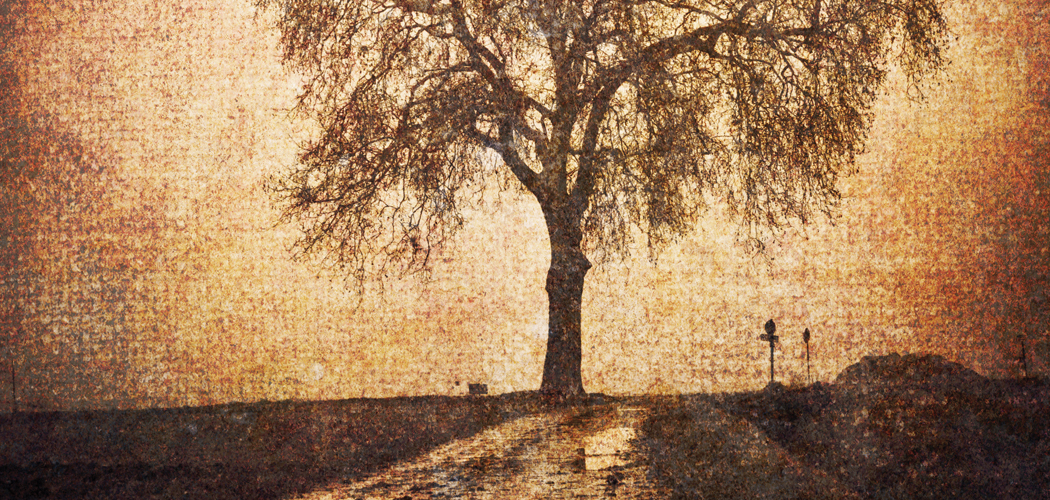[title subtitle=”fiction Marla Cantrell”][/title]
This story was inspired by this quote, “We’re all just walking each other home,” which was written by Ram Dass
Wanda laid him to rest on a Saturday, the week of Easter, about the same time as Christ had risen from the grave all those years ago. Harrell went down into the ground as Jesus came up. That’s what she thought that day at the cemetery. She saw it clearly, the rising and falling, like a weight and counterweight, and it made her dizzy.
She asked the driver of the family car – she was alone in it – to drive through Carmen’s Catfish on the way home, and he did, though she could feel his irritation in his outtake of breath, the tightening of his fingers on the steering wheel.
No matter, Wanda thought. She was a stress eater, and now, apparently, a grief eater. It wasn’t as if she’d see the driver again. So she leaned up from the backseat and ordered the Muddy River Special, with extra hot sauce, and ate it all before the hulk of a car pulled into her gravel driveway.
At home, she turned on every light and both TVs. Harrell’s work boots were still by the front door, caked in mud, dappled with cement. He worked hard, pouring concrete, painting houses, putting up drywall. Their own house was a hodgepodge of job site castaways. Mismatched doors. Flooring that ran from linoleum to tile to wood. Not one door knob was like another. But in the sunroom there were bookshelves the color of honey, smooth and straight, made from maple that had been whitewashed and then carefully stained. He’d built them the year Wanda took a writing class at the community college and thought she’d become a writer. She had not.
In the days that followed, Wanda felt as if she was treading water, so far away from shore she could only see it darkly. When she wandered out she drove shakily, her foot tapping the brake too often, and everything seemed to move too fast. And so she stayed home, more or less, for six months, sneaking out at odd hours of the night to buy bread and chocolate, to drive through Taco Bonita.
But fall arrived, her favorite time of year, and she peered out the window and decided to step out into the sunlight. Why she stopped at Beardo’s Buying Emporium she couldn’t quite say. The sign was red and yellow, the door blue, and there was a line of metal lawn chairs out front, all purple. A happy place, she thought. The man behind the counter was indeed bearded, his belly round, his shoulders pulled back as if balancing his girth.
“What can I help you with?” he asked, and Wanda jumped.
“Oh, not a thing,” she said. “Just looking.”
“Looking don’t cost a thing. Just you have at it.”
And so she wandered the aisles where all kinds of things you didn’t need cluttered Formica tabletops, sat on bookshelves whose paint was peeling. In the very back though, next to a case of ancient Dr. Pepper bottles, was an old yearbook from Mountainburg High. 1976. The year Harrell dropped out to marry her. She flipped through it and found Harrell’s picture. His frizzy hair was a bowl around his head, filling the camera lens, and his shoulders were wide. It was too much, and she dropped the book, and slumped to the floor and cried.
“You got troubles, ma’am?” the bearded man asked when he found her, and kneeled down on the floor beside her.
“More than the sea has sand,” Wanda said.
He pulled a hanky from his pocket, unfolded it and handed it over.
“Everybody’s got their troubles, ma’am. Everybody.”
“My husband Harrell is dead,” Wanda said, and leaned into the man. “Got sick and I thought he’d get better, but then he asked if I’d drive him to the Emergency Room and I did and they took him back and I went to the vending machine to get a Coca-Cola and some peanuts and the next thing I knew I was in a chapel no bigger than my own kitchen and a man young enough to be my own son put his hand on my shoulder and told me Harrell was gone.”
The man held Wanda while she sobbed. “There, there,” he said. “Bless your little heart.”
Wanda pulled away from him, his touch so kind it seemed to burn her skin.
“Anybody you want me to call?” the man asked.
“Nobody to call. It was just me and Harrell. No kids. No nothing.”
“Same here,” the man said. “Just me, Beardo. And this store.”
“I feel like I took a wrong turn somewhere. Like if I found the right road I could get back to my old life, and Harrell would be there waiting.”
“Would that it could be so,” Beardo said.
“Would that it could,” Wanda repeated. “I wept in the Mimi’s Mini Mart one night last week. Scared the clerk half to death.”
“No shame in crying.”
“No glory either.”
“There’s little glory in this mortal life. We’re born, we stumble through. Nobody knows what they’re doing. In the end, we all just keep walking each other home.”
Wanda frowned. She had gotten into a conversation that had turned philosophical, and she couldn’t quite keep up. She looked at herself. Her jeans were straining at the waist. She’d been eating way too much. Her hair was wild, left to its own devices since Harrell passed, and the gray, she knew, covered the crown of her head. Her socks, one blue and one black, came straight from Harrell’s sock drawer. “I should go,” she said, and grabbed a table leg to pull herself up.
“Stop by anytime,” Beardo said. And Wanda decided: she would never go back.
But sorrow clouds a person’s thinking, and after another week she ventured out again, and once again she went to Beardo’s. He was not behind the counter this time. He was sitting at a card table playing dominoes with three old men, each sitting in a motorized wheelchair.
“I’m back,” Wanda said, her voice a little too high.
“Nice to see you,” Beardo said, and the other three men tipped their caps to her. “Pull up a chair.”
“Oh, I couldn’t,” Wanda said, but when Beardo rose she slipped into his seat.
“Play my hand,” he said, and disappeared into the belly of the store.
The old guys let her win, she was sure of it. The one with the Co-op hat told her about his wife, Lou, who was coming soon to pick him up. She was once a belly dancer who had lived in a commune, who divorced him twice, but always came back. “Couldn’t get enough of old Trellon,” he said, and all but crowed.
It was noon before she knew it, and Beardo ordered in a sack of burgers, a pile of onion rings, Cokes so big it took two hands to hold them. The men ate greedily, this bad food they’d been warned against.
“Can you stay?” Beardo asked Wanda, as soon as lunch was over. “I need to take these fellas back to the home.”
Trellon ducked his head, and Wanda understood that if Lou had ever existed, she wasn’t part of the equation now. “Sure,” she said. “What do I do if a customer comes in?”
Beardo smiled. “Sell ‘em something,” he said.
He was gone for more than an hour, and when he rambled up in his rusty van, she watched him walk up the steps.
“Sell anything?” he asked.
“A set of salt-and-pepper shakers. The ones shaped like poodles.”
“Good for you,” he said. “I should pay commission.”
“You bought lunch, so I’d say we’re even.”
“I’ve been hoping you’d come back,” he said.
“Really?”
“Nobody with a broken heart should suffer alone. I lost my mama when I was twenty-two. Beautiful woman. A red head. Worked cleaning houses most of her life. Saved every cent she could. Bought me a truck when I was sixteen. I didn’t know how much of a sacrifice it was back then.
“When she died, I took off. Ended up in Tallahassee in a honky-tonk talking to a man who looked just like Willie Nelson. He bought me a beer and I told him my story. Cried like a baby, and this guy just listened. When I was finished, he put his arms around me. I thanked him and he said, ‘Nothing you wouldn’t do for somebody as messed up as you seem to be right now. This old world is a lonely piece of sorry dirt. The way I see it, we’re all here so we can keep walking each other home, until we get to our real home way up there in heaven.’
“When you showed up you had that look in your eye. You were just as lost as a little lamb. I didn’t know what had happened, but I knew you needed ole’ Beardo to help.”
Wanda felt the first knitting together of her broken heart. She remembered being fourteen, when she and Harrell fell in love, and how he walked her from the bus stop every day after school, his hand in hers, and how she’d look out the window when she got inside. Most days, he’d still be standing in her pitiful little yard, his hand shading his eyes against the sun, and he’d be smiling.
She imagined him in heaven, his sweet old bones no longer aching, his lungs pulling in air without effort. She hoped he was watching her wade through this new world of hers, cheering her on, waiting for the day he could finally walk her home.
“You come back tomorrow,” Beardo said. “Trellon says you’re a sorry excuse for a domino player.” Beardo smiled. “Can’t have an old man like that beat you at a kid’s game. You come back and I’ll teach you some tricks my own mama taught me. You’ll be beating us all in no time.”
The sun was coming through Beardo’s Buying Emporium. It warmed Wanda’s back, it cast a halo of light around her untamed hair. Beardo, facing the glass, put his hand up and shielded his eyes, and for the first time since Harrell died Wanda believed the world might finally right itself again.




